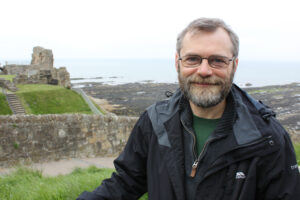
Prof Josep Call, CDI Co-Director
School of Psychology and Neuroscience
University of St Andrews
See biography
Research areas: Comparative psychology, Animal cognition, Primate cognition
Josep grew up near Barcelona and obtained a BA (Psychology) from the Universitat Autonoma de Barcelona (Spain) and a Master and PhD (both in Psychology) from Emory University (USA). Prior to becoming Professor in the Evolutionary Origins of Mind at the University of St Andrews, he was a lecturer in the School of Biological Sciences at the University of Liverpool, and a senior scientist at the Max Planck Institute for Evolutionary Anthropology in Leipzig (Germany). Josep studies technical and social problem solving in animals with a special emphasis on the great apes. Some of his current projects focus on inferential reasoning, tool-use, coordination and social learning. Ultimately, his goal is to contribute to elucidate how cognition evolves.
Prof Josep Call – Researcher profile
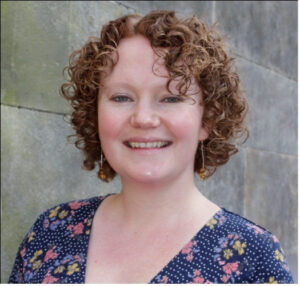
Prof Amanda Seed, CDI Co-Director
School of Psychology and Neuroscience
University of St Andrews
See biography
Amanda Seed is a comparative and developmental psychologist studying the evolution of cognition, in particular causal reasoning, cognitive control and active learning in primates and children. She was recently awarded an ERC Starting Grant to explore the relationship between some of these different cognitive skills and how they combine to affect performance on problem-solving tasks. The motivation for this research is to shed light on the evolutionary changes in representational, mnemonic and executive processes that marked the origins of uniquely human thinking.
Amanda is a Professor at the School of Psychology and Neuroscience at the University of St Andrews where she is a member of the Centre for Social Learning and Cognitive Evolution, and the Scottish Primate Research Group. She is the Director of the ‘Living Links to Human Evolution’ Centre at Edinburgh Zoo, where capuchin and squirrel monkeys take part in cognitive experiments in full view of the visiting public, with accompanying displays for public engagement with science. She is also the co-director of the newly formed Global Research Centre for Diverse Intelligences bringing together research on intelligence across different systems and disciplines.
Prof Amanda Seed – Researcher profile
Local partners

Dr Cinla Akinci
University of St Andrews Business School
Department of Management
See biography
Research areas: Decision making, Intuition, Organisational learning, Organisational behaviour
Cinla is Senior Lecturer of Management at University of St Andrews Business School. Previously she held academic positions at the University of Surrey’s Business School. Cinla obtained her PhD in Management and Organisational Behaviour and MSc in International Business Management from University of Surrey, and BA(Hons) in Business and Economics from Trent University (Canada). Her research is focused on the role of intuition in judgement and decision making, and organisational learning, drawing on management, cognitive psychology and economics. She is particularly interested in decisions taken in real-world contexts and dynamic environments, under conditions of uncertainty.
Dr Cinla Akinci – Researcher profile
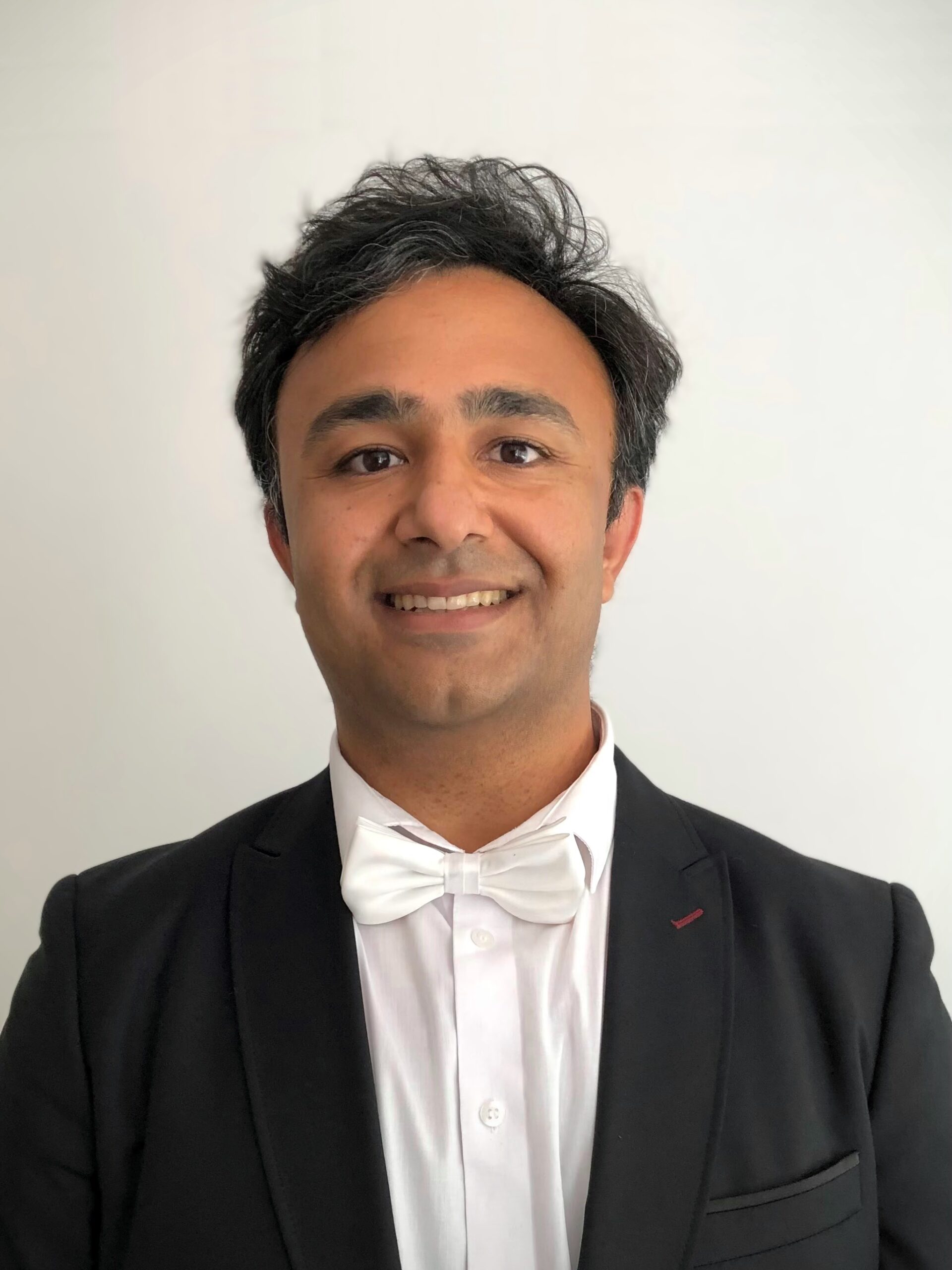
Dr Özgür Akgün
School of Computer Science
University of St Andrews
See biography
Research areas: Artificial Intelligence, Constraint Programming, Modelling, Optimisation
Özgür is a Senior Lecturer at the University of St Andrews. After completing his undergraduate degree in Izmir, Turkey, he came to St Andrews to pursue a PhD and has remained there ever since. Özgür’s main research interest lies in high-level modelling within constraint programming. He has published several research papers on various aspects of this topic and has led the development of the automated modelling system Conjure since 2010. Conjure has provided a fruitful platform for further research into constraint programming. St Andrews hosts one of the largest and most active research groups in the world specialising in constraint programming.

Dr Derek Ball
Department of Philosophy
School of Philosophical, Anthropological and Film Studies
University of St Andrews
See biography
Research areas: Philosophy of mind, Philosophy of language
Derek holds a BA from Whitman College and a PhD from the University of Texas at Austin. His research interests span a wide range of issues in philosophy of mind and language, and he has collaborated on projects in developmental and comparative psychology. Derek’s current research includes foundational issues about linguistic meaning and mental content – his recent book Definition and Dispute (Oxford, 2024) defends a novel view of how words get their meaning across temporally extended investigations and social interactions — and contemporary ways of talking and thinking about speech acts and mental states (such as quotative ‘be like’).
Dr Derek Ball – Researcher profile
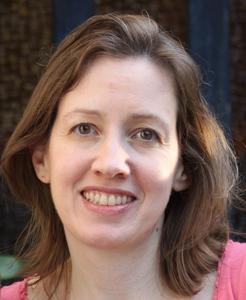
Prof Malinda Carpenter
School of Psychology and Neuroscience
University of St Andrews
See biography
Research areas: Developmental (and comparative) psychology
Malinda obtained her undergraduate degree from the University of Florida, and her Masters degree and PhD in Developmental Psychology from Emory University in the US. After postdoctoral positions in Denver (working on autism) and Liverpool, she worked in the Department of Developmental and Comparative Psychology at the Max Planck Institute for Evolutionary Anthropology for many years, before becoming a Professor of Developmental Psychology at the University of St Andrews. She studies infants’ and young children’s participation in shared activities (e.g., joint attention, gestural communication, imitation, collaboration) and prosocial and affiliative behaviour. She also does some comparative work on similar topics with apes and dogs.

Dr Tugce Cuhadaroglu
University of St Andrews Business School
Department of Economics
See biography
Research areas: Decision theory, Social choice and welfare, Behavioural economics
Tugce was born in Turkey and received her BA from Bogazici University and MSc from Bilgi University. After completing her PhD at Universitat Autònoma de Barcelona, she moved to the University of St Andrews, where she is currently employed. She also serves as a co-director at the Institute of Behavioural and Neural Sciences. Tugce’s research interests revolve around exploring individual decision processes, primarily in a social context. In particular, she is interested in social interactions and how peer effects alter individual behaviour.
Dr Tugce Cuhadaroglu – Researcher profile

Dr Martin Dominik
School of Physics and Astronomy
University of St Andrews
See biography
Research areas: Astronomy and astrophysics, Extra-solar planets, Emergence of life, Universal biology, Extra-terrestrial intelligence, Social and cultural astronomy, Science communication, Science policy
Martin is a Reader in Physics & Astronomy at the University of St Andrews and Co-Director of the St Andrews Centre for Exoplanet Science (StA-CES), as well as President of the Network of Researchers on the Chemical Emergence of Life (NoRCEL). He received a doctorate in Physics from the University of Dortmund (Germany). Besides research on the astrophysical applications of the gravitational bending of light, in particular for studying planets or black holes, he explores links across both the sciences and humanities, embracing science as integral part of society and culture. He facilitated the establishment of the St Andrews SETI Post-Detection Hub.
Dr Martin Dominik – Researcher profile

Dr Emily Finer
School of Modern Languages
University of St Andrews
See biography
Co-Director of St Andrews Centre for Exoplanet Science
Research areas: Comparative literature, Translation, Science fiction, Slavic languages and cultures
Emily researches transnational and multilingual interactions between English, Polish, Ukrainian, Yiddish and Russian language cultures. Her current focus is on intersections between global science fiction, exoplanet science, and space policy. She was recently PI for a St Andrews STAIRS grant ‘Forecasting Reproduction in Space’ which investigates whether science fiction and scientific papers address similar issues around reproduction and agency and explores the techniques used in literary and scientific writing to communicate complex ethical issues. She contributed to the Wardlaw Museum’s Alien Worlds Exhibition, BBC Radio 4’s Red Mars Series, and the Futurescaping Space podcast.

Dr Juan-Carlos Gomez
School of Psychology and Neuroscience
University of St Andrews
See biography
Research areas: Cognitive development and evolution, Communication, Theory of mind, Play, History and conceptual issues in cognitive and behavioural sciences
Degree and PhD in psychology (Universidad Autonoma de Madrid). Since 1995 I have been Lecturer and then Reader in the University of St. Andrews. I have studied the onset of intentional communication in hand-reared gorillas and chimpanzees compared with human infants, joint attention and theory of mind skills bilities in nonhuman primates and in diverse populations (typical and atypically developing humans), and conceptual and historical issues in psychology from an interdisciplinary perspective.

Prof Susan Healy
School of Biology
University of St Andrews
See biography
Centre for Biological Diversity, School of Biology
Research areas: Animal cognition, Nest building, Spatial learning and memory
Sue grew up in New Zealand took her first degree (BSc Hons) in Zoology and Physiology at the University of Otago. Her second degree (DPhil) was in Zoology from the University of Oxford and was based on work on food storing, spatial memory, and the hippocampus in birds. After a Junior Research Fellowship held at St John’s College, Oxford, she has had lectureships at the Universities of Newcastle, Edinburgh, and St Andrews. These have been held in both Psychology and Biology departments.
Sue works on understanding the role that learning and memory plays in the lives of ‘real’ animals, working on cognitive capacities of wild hummingbirds in the Rocky Mountains, Canada, and on nest building in birds. This latter work includes experiments using laboratory zebra finches and observational data on blue tits building in boxes in St Andrews, and sparrow weavers building in the Kalahari desert. She also works on the hormonal and neural bases of nest building.

Prof Cat Hobaiter
School of Psychology and Neuroscience
University of St Andrews
See biography
Research areas: Ethology, Comparative behaviour, Animal cognition, Communication
Cat grew up in Lebanon, England, and France. She has worked with primates across Africa for 20-years. She earned her PhD from the University of St Andrews in 2011. Today her group, the Wild Minds Lab, concentrates on long-term field studies of communication and cognition in wild African apes, elephants, and more. She continues to spend around half the year in the field, and directs field sites in Uganda and Guinea. She likes good coffee and bad science-fiction.
You can find more about her research here: Wild Minds Lab, The Great Ape Dictionary
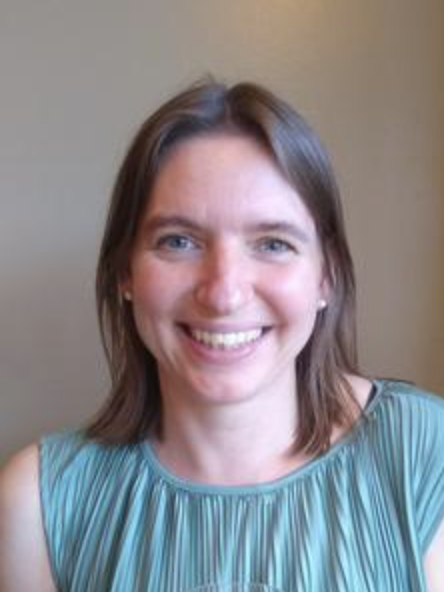
Dr Sophie Huczynska
School of Mathematics and Statistics
University of St Andrews
See biography
Research areas: Algebra and combinatorics, Information security, Theoretical computer science
Dr Huczynska obtained her PhD in pure mathematics from the University of Glasgow then worked as a researcher in the School of Informatics at the University of Edinburgh, before joining the School of Mathematics and Statistics at the University of St Andrews, where she held a Royal Society Dorothy Hodgkin Research Fellowship from 2004-2010. She became a Lecturer in 2010, Senior Lecturer in 2015 and Reader in 2023. She has worked part-time since 2008. Her research interests are in the area of combinatorics and finite fields, in particular their applications to cryptography and communications. She has strong interdisciplinary links to theoretical computer science and AI.
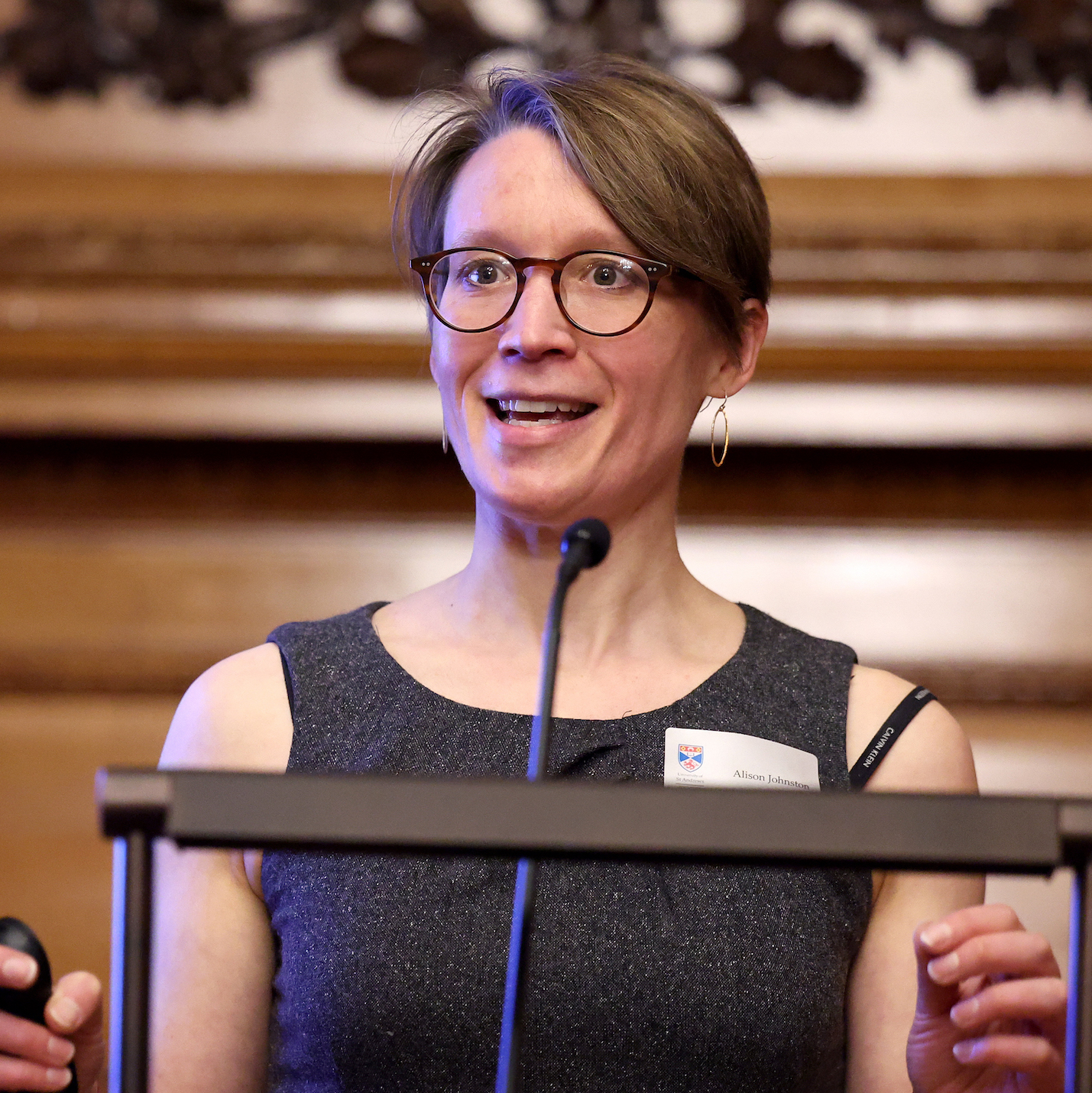
Dr Alison Johnston
School of Mathematics and Statistics
University of St Andrews
See biography
Co-Director of Centre for Research into Ecological and Environmental Modelling (CREEM)
Research areas: Ecological statistics, Citizen science, Conservation ecology, Biodiversity monitoring
Alison develops analytical methods to analyse ecological data and track changes in the natural world. Using combinations of statistical and machine learning approaches, she leverages the information from complex and messy ecological datasets. She has a particular interest in using citizen science data, which uses the power of the general public engaging with nature in order to increase our understanding of dynamic ecological systems. She is also interested in using acoustics to monitor biodiversity.
Dr Alison Johnston – Researcher profile
Dr Alison Johnston – Google Scholar Citations

Dr Fergus Neville
University of St Andrews Business School
Department of Management
See biography
Research areas: Organisational psychology, Crowd management, Leadership, Toxic behaviour
Fergus grew up in Dundee and obtained his BSc, MRes and PhD from the School of Psychology & Neuroscience at the University of St Andrews interspersed with time as a Robert Jones Scholar at Emory University. Since 2019 Fergus has held a faculty position in the University of St Andrews Business School (Department of Management). He has also held honorary positions at Bayreuth University and the University of Dundee. Fergus researches a range of phenomena which are central to understandings of organisations and their management, including social identity, leadership and influence, normative processes, social support and toxic behaviour in groups.

Prof Silvia Paracchini
School of Medicine
University of St Andrews
See biography
Research areas: Human genetics, Human cognitive abilities, Specific learning difficulties
Prof Paracchini graduated in Biological Sciences (cum laude) from University of Pavia in 1998 and obtained a DPhil in Human Genetics from Oxford University in 2003. She conducted her post-doctoral training in Prof. Anthony Monaco’s group at the Wellcome Trust Centre for Human Genetics, Oxford University where she became interested in dyslexia genetics. In 2011, she was awarded a Royal Society University Research Fellowship to set up her group at The University of St Andrews where she continues to investigate the genetics of specific learning difficulties and cognitive abilities. In 2024, she was appointed as Professor of Neurodevelopmental Genomics at the University of Bonn. Her research focusses on dyslexia and reading abilities and she has a specific interest in dissecting the complex link between human handedness, brain asymmetries and cognition.

Dr Adam Reed
Department of Social Anthropology
School of Philosophical, Anthropological and Film Studies
University of St Andrews
See biography
Research areas: Animal ethics, Animal protection activism
Adam Reed worked closely with a Scottish based animal protection organisation for 10 years. The project focused on animal ethics and everyday activism, professionalism in animal activism, shifting understandings of human-animal relationships, and relationships between animal activism and animal science.
Key publications: Animal People: Moral Subjects in the Work of Animal Protection. Cornell University Press. 2025
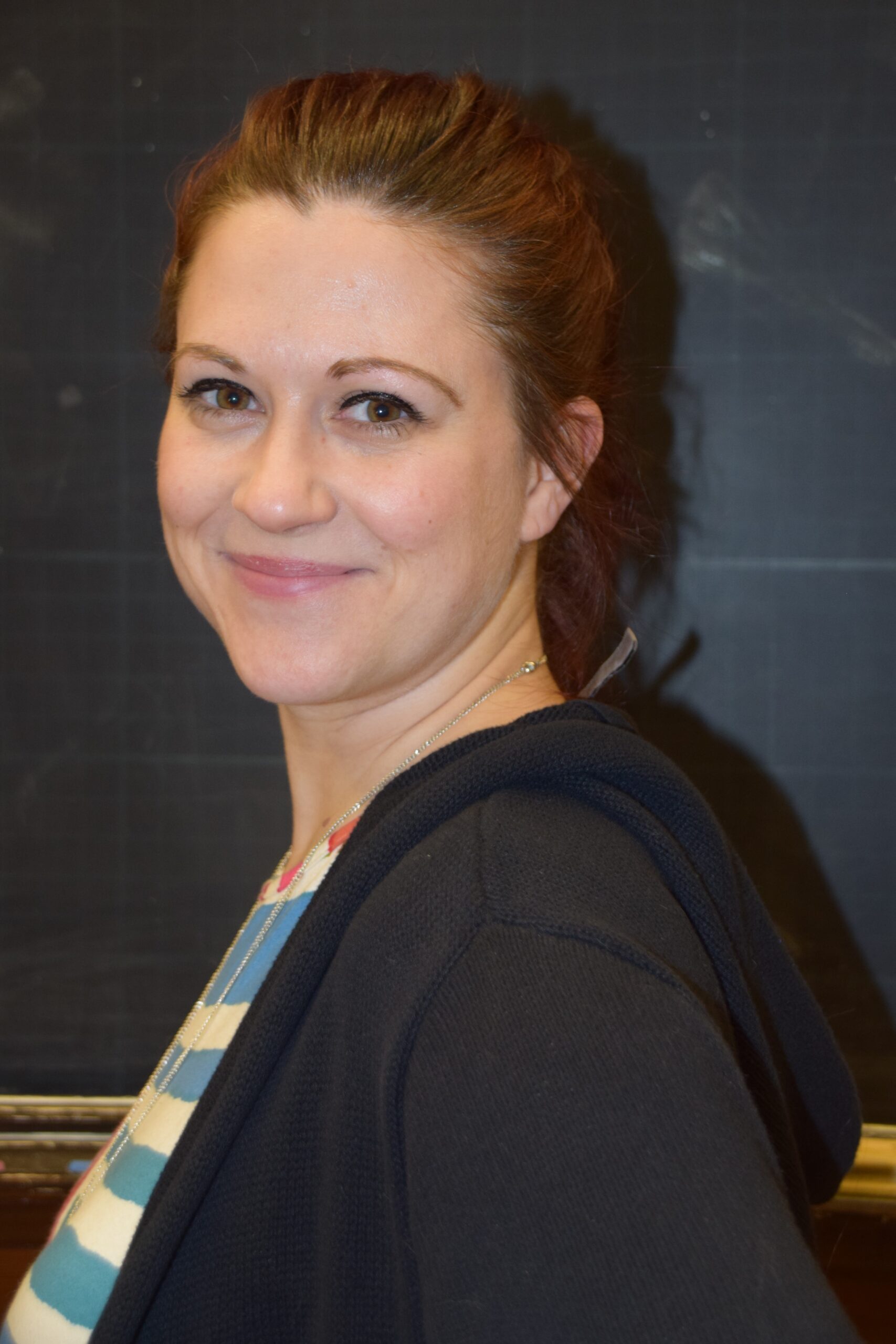
Dr Manon Schweinfurth
School of Psychology and Neuroscience, University of St Andrews
See biography
Research areas: Evolutionary biology, Animal cognition, Cooperation
Manon Schweinfurth grew up in Germany and studied Biology with Psychology as minor in Mainz (Germany). During her studies, she participated in projects on ants, baboons, geese and ravens to study why and how animals get along with other. For her PhD, she moved to Bern (Switzerland) to study the evolution of social behaviours in rats. Thereafter, she was awarded a Swiss National Science Foundation fellowship to study chimpanzees in Chimfunshi (Zambia). Today, she is a Senior Lecturer in St Andrews (UK) and leads the CooperationLab, investigating how and why seemingly altruistic behaviours emerge and persist in a competitive world.

Prof Alexander J. Stewart
School of Mathematics and Statistics
University of St Andrews
See biography

Dr Kasim Terzic
School of Computer Science
University of St Andrews
See biography
Research areas: Computer Vision, Machine Learning, Artificial Intelligence
Kasim holds a BEng in Electronic Engineering from the University of East Anglia, an MSc in Information and Communication Systems from the Hamburg University of Technology, and a PhD in Computer Science from the University of Hamburg. After postdoctoral appointments at the University of the Algarve and Queen Mary University of London, he joined the University of St Andrews. Kasim is interested in computational and biological models of vision and perception, understanding of visual scenes, as well as relationship between perception and action.

Dr Alice Toniolo
School of Computer Science
University of St Andrews
See biography
Research areas: Formal models of argumentation, Deliberation dialogue, Multiagent systems, Artificial intelligence
Alice Toniolo is a Lecturer in the School of Computer Science at the University of St Andrews. She obtained a PhD in Computing Science from the University of Aberdeen, and a BSc and MSc in Computer Engineering from the University of Padua. Drawing from philosophical studies of human argumentation, her research aims to develop intelligent systems that can help people reason, debate, and explain decisions more effectively when confronted with conflicting and uncertain information such as in critical situations. Her research lies on computational models of argumentation, and spans across different areas such as normative and evidential reasoning, argument visualisation, and deliberation.
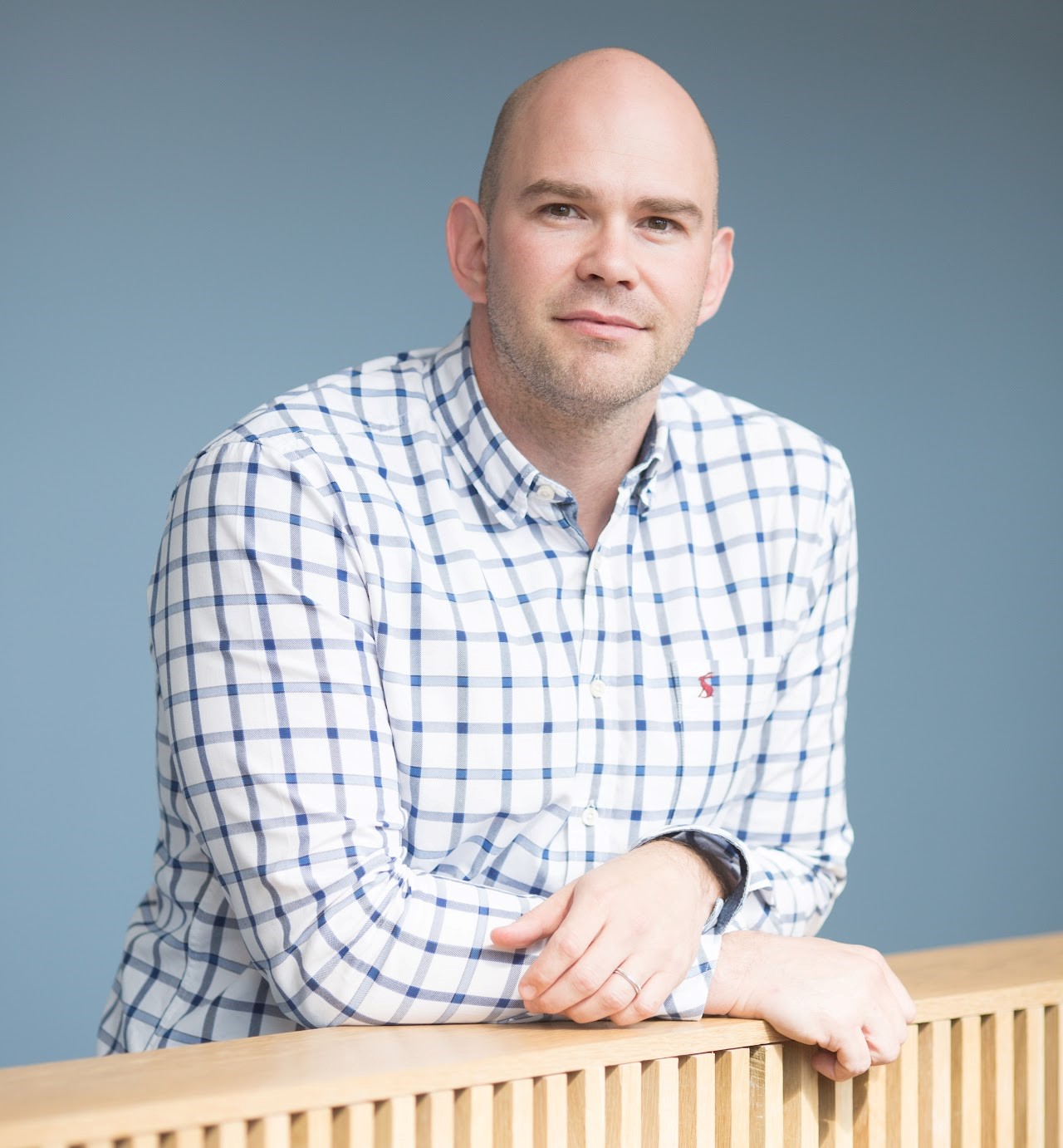
Prof Conny Wollbrant
University of St Andrews Business School
Department of Economics
See biography
Research areas: Behavioural economics, Experimental economics, Judgment and decision making
Conny obtained a BSc Economics from the University of York, an MSc Environment and Development from the London School of Economics and Political Science, and a PhD in Economics from the University of Gothenburg. Before joining St Andrews as Professor of Economics and Finance, he was Professor of Economics and Director of the Behavioural Science Centre at the University of Stirling. Conny studies human behaviour and motivation with particular emphasis on design of interventions that target social dilemma problems. Current projects focus on design of interventions and incentives aiming to reduce the spread of antimicrobial resistance and promoting vaccine uptake, in addition to the human capacity for forecasting policy effects. The overarching goal is to refine understanding of human motivation and enhance accuracy of human judgment and forecasts.

Dr Juan Ye
School of Computer Science
University of St Andrews
See biography
Research areas: Sensor data analysis, Human activity recognition, Continual learning, Domain adaptation
Juan is a Reader in School of Computer Science at the University of St Andrews, UK. Her research is to make best use of sensor data in understanding the environment and the people, and thus in making informed decisions. Her expertise centres around applied machine learning, continual learning, and domain adaptation. Juan has obtained BSc and MSc in Computer Science from Wuhan University, China and PhD from University College Dublin, Ireland.
Global partners

Beccy Angus
Head of Discovery and Learning
Royal Zoological Society Scotland
See biography
More information coming soon.

Minoru Asada
International Professional University of Technology
Symbiotic Intelligent System Research Center
Open and Transdisciplinary Research Initiatives
University of Osaka
See biography
Research areas: Cognitive developmental robotics
Prof Minoru Asada is a distinguished professor at the University of Osaka, renowned for his work in cognitive developmental robotics, artificial intelligence, and robotics. He explores human cognitive
development by designing humanoid robots that simulate learning and social interaction. As a founding figure of RoboCup, an international robotics competition aimed at advancing AI and robotics through challenges like robot soccer, Prof. Asada has played a key role in promoting research on intelligent, autonomous robots. His work also addresses robot ethics and artificial consciousness, bridging the gap between human cognitive processes and artificial systems.
Visiting Professor at Chubu University Academy of Emerging Sciences, Japan
Principal investigator at Center for Information and Neural Networks (CiNet), National Institute of Information and Communications Technology (NICT)

Associate Prof Alice Auersperg
Messerli Research Institute
University of Veterinary Medicine
Vienna, Austria
See biography
Research areas: Animal behaviour, Comparative psychology, Avian cognition
Alice is a cognitive biologist with Bavarian roots. After studying Zoology at Edinburgh University she did her PhD (in Zoology) at Vienna University (Austria) and Postdocs at Vienna University and Oxford University (UK) as a FWF Erwin Schrödinger fellow. Thereafter she worked as senior scientist, Assistant and Associate Professor at the Messerli Research Institute at the University of Veterinary Medicine Vienna (Austria) Alice is interested in the processes of technical innovations across agents (with focus on birds), particularly in tool use and other forms of instrumental problem solving. Her goal is to better our understanding of the evolution of technology.
Associate Prof Alice Auersperg – Researcher Profile
Goffin Labs
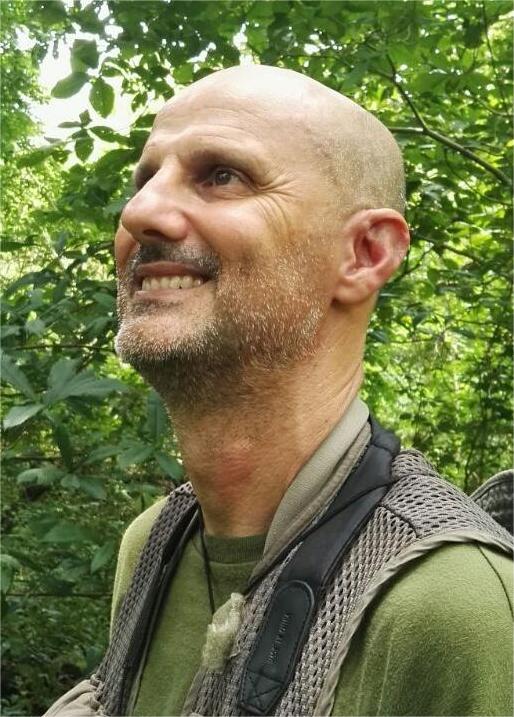
Filippo Aureli
Universidad Veracruzana, Mexico
See biography
Research areas: Animal behaviour, Animal emotion, Primate cognition, Biodiversity conservation
Filippo holds a degree in Biology from the University “La Sapienza” in Rome (Italy) and a PhD in Ethology from the University of Utrecht (Netherlands). He was a postdoctoral fellow at Emory University (USA), and then a Professor of Animal Behaviour and Director of the Center for Evolutionary Anthropology and Paleontology Research at Liverpool John Moores University (United Kingdom), of which is now an Emeritus Professor. Filippo is currently a Research Professor at the Instituto de Neuroetologia of Universidad Veracruzana (Mexico). He has 40 years of research experience in primate behaviour, focusing on the regulation of social relationships, conflict management, uncertainty, and fission-fusion dynamics. Over the past 25 years, he has dedicated himself to the study of the behavioural ecology, cognition, and conservation of spider monkeys in Mexico and Costa Rica.
Filippo Aureli – Researcher Profile
Filippo Aureli – Google Scholar Citations
Filippo Aureli – National Geographic Explorer Directory

Andrew Barron
School of Natural Sciences
Macquarie University, Australia
See biography
Research areas: Neuroethology
Andrew Barron is the Director of the Macquarie Minds and Intelligences Initiative. He is a neuroethologist, which is a discipline of neuroscience studying the neural mechanisms of natural animal behaviour. Most of his research focuses on insects, especially honey bees. Using advanced techniques to visualise, manipulate, map and record from the insect brain Barron’s team has made important contributions to the understanding of fundamental behavioural systems such as cognition, navigation, social behaviour and learning and memory. He also conducts research to improve honey bee health and welfare. He is studying how bees and bee colonies are impacted by pesticide and disease stressors, and how to best intervene to help bee colonies under stress.

Prof Erica Cartmill
Department of Anthropology
Program in Animal Behavior
Program in Cognitive Science
Indiana University, USA
See biography
Research areas: Comparative communication, Comparative cognition, Evolution of language, Primate behaviour
Erica earned a BA (linguistics) from Swarthmore College with a senior thesis on comparisons between human language and animal communication. She received her PhD (psychology) from the University of St Andrews for work on the gestural communication of orangutang. She was a postdoctoral scholar at the University of Chicago, studying children’s language acquisition and gesture with Susan Goldin-Meadow. Erica then took a faculty position in the Departments of Anthropology and Psychology UCLA, where she taught for 10 years. In 2024, Erica moved to Indiana University where she is professor of anthropology, animal behaviour, cognitive science, and psychology. Erica studies communication, social cognition, and learning in great apes and human children. Her collaborative work also includes dogs, parrots, songbirds, and dolphins. Erica is the co-founder and co-director of the Diverse Intelligences Summer Institute. Together with Jacob Foster, she is establishing a center for the study of Diverse Intelligences at Indiana University.
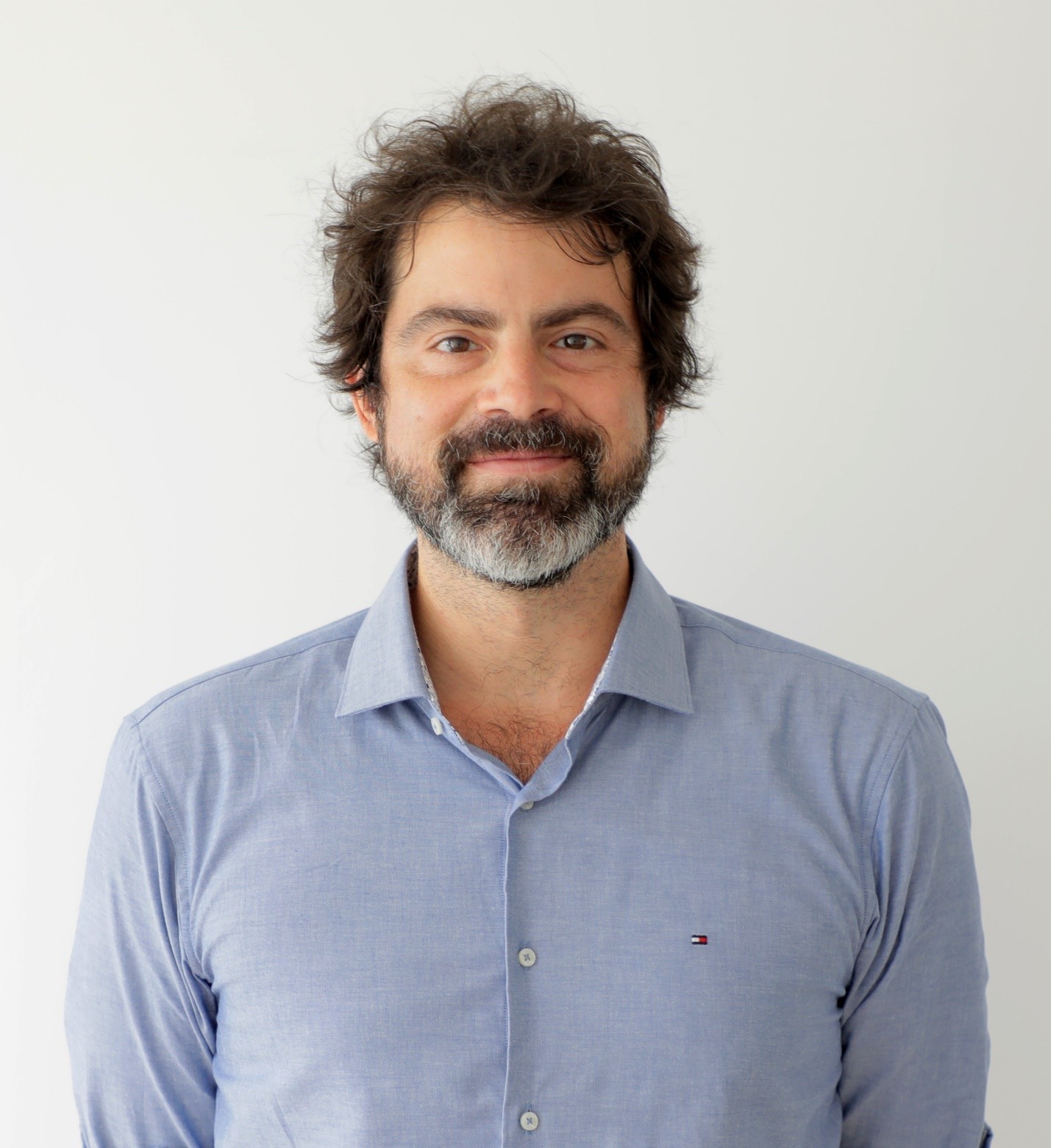
Mathieu Charbonneau
Africa Institute for Research in Economics and Social Sciences, UM6P, Morocco
See biography
Research areas: Philosophy of science and technology, Cultural evolution, Social learning
Mathieu is an Associate Professor at Mohammed VI Polytechnic University, in Rabat (Morocco). Originally from Montréal (Canada), he earned his PhD in Philosophy at the Université de Montréal, focusing on analogies in scientific reasoning, especially in evolutionary biology. This interest extended to the relationship between biological and cultural inheritance. He was a post-doctoral researcher at the Konrad Lorenz Institute for Evolution and Cognition Research in Vienna (Austria), and at the Cognitive Science Department at the Central European University, in Budapest (Hungary). Mathieu’s research explores the mechanisms and processes of technological change and tries to understand what makes human technological evolution apparently open-ended. These interests led him to collaborate with comparative and experimental psychologists, archaeologists, and anthropologists, among others.
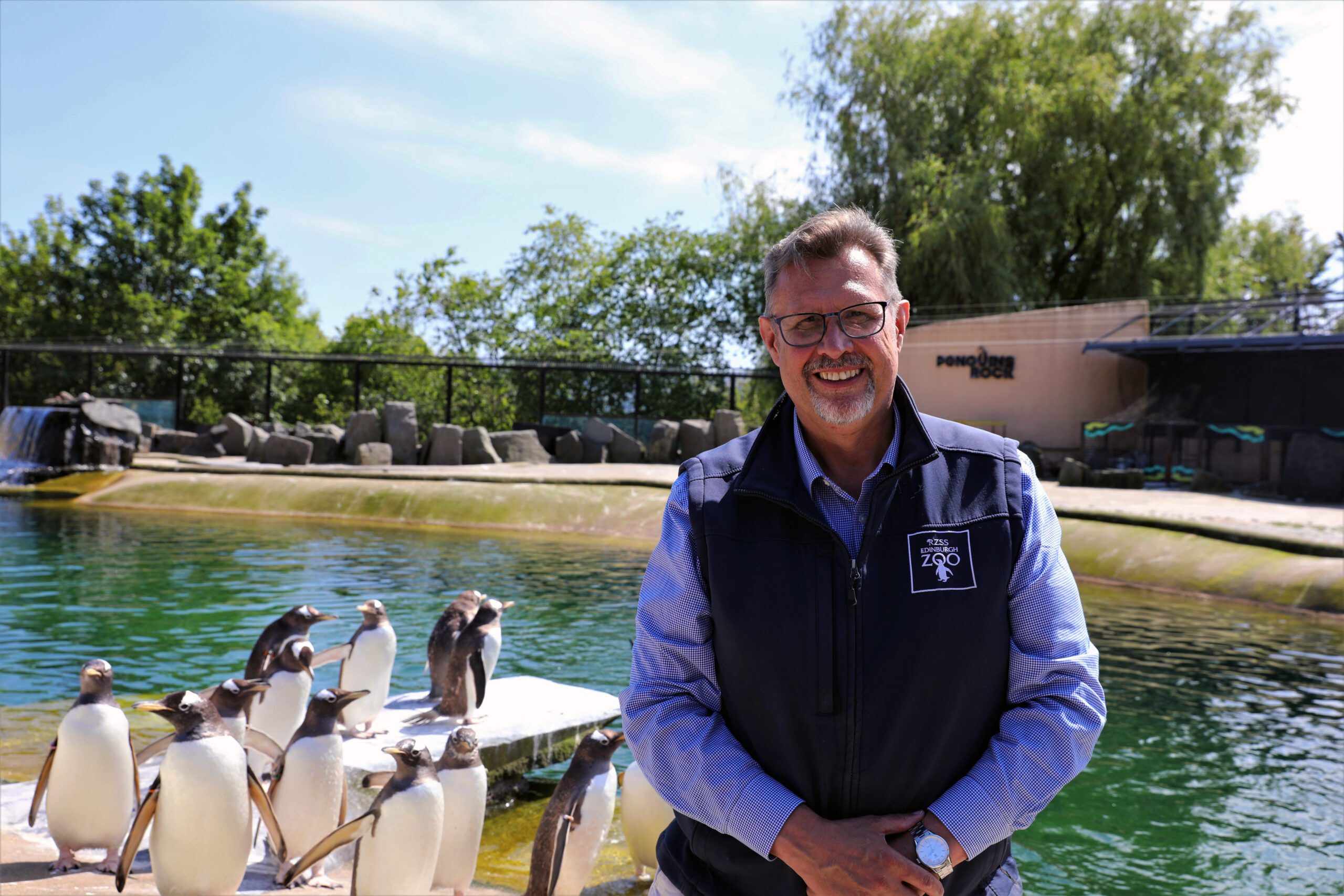
David Field
Chief Executive Officer
Royal Zoological Society Scotland
See biography
Research areas: Conservation, Ex-situ management and welfare of zoo animals and nature connectedness
David is the CEO of the Ryal Zoological society of Scotland the conservation charity that leads Edinburgh Zoo and Highland Wildlife Park. David is also the Vice President of the World Association of Zoos and Aquaria (WAZA) and the Co-Chair of Reverse the Red – a coalition of conservation NGO’s supporting the implementation of Target 4 of the Global Biodiversity Framework. David seeks to maximise the conservation impact of zoos and drives improved welfare of zoo animals at a global level.
Royal Zoological Society of Scotland
World Association of Zoos and Aquariums

Jacob G. Foster
Department of Informatics
Indiana University, USA
See biography
More information coming soon.
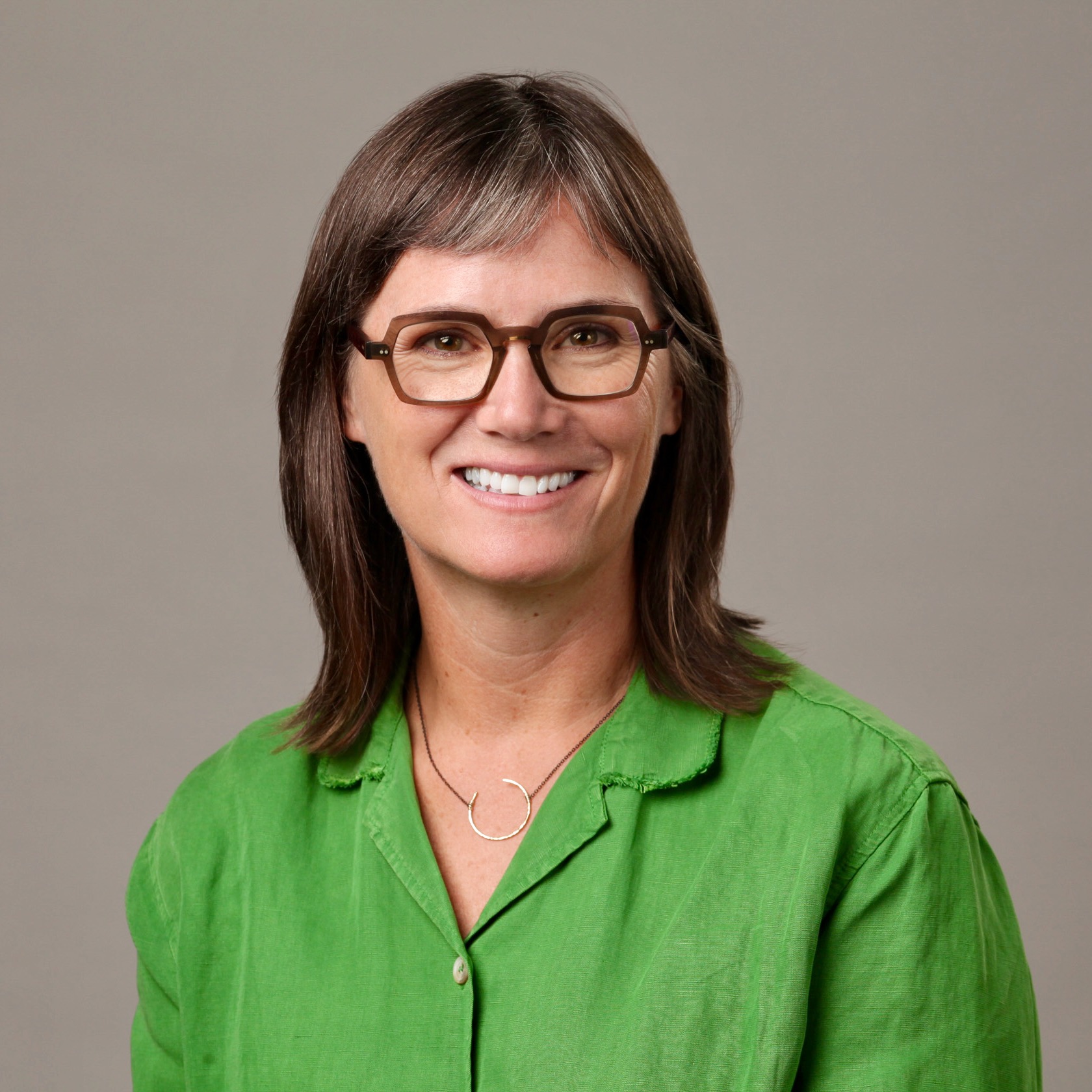
Prof Kristen Frenzel
Associate Director of Education and Outreach
Center for Advanced Motor
BioEngineering and Research (CAMBER)
Coulter Department of Biomedical Engineering
Emory University and Georgia Institute of Technology
See biography
Research areas: Inclusive pedagogy, Interdisciplinary education, Lived experience and public outreach
Kristen grew up in Atlanta, GA (USA) and attended Georgia Institute of Technology (“Georgia Tech”) and graduated with a Bachelor’s of Science in Applied Biology. She continued her education by earning a PhD from Emory University in the Biochemistry, Cell and Developmental Biology Program. Her career has been focused on interdisciplinary education, teaching and mentoring undergraduate students in the Neuroscience and Behavioral Biology program. Her scholarship centres on inclusive pedagogical advances and she contributes to ongoing conversations about enhancing students’ science identity and feelings of belonging. She’s currently engaged with the Center for Advanced Motor BioEngineering and Research where she’s the associate director for education and outreach.

Germán Gutiérrez
Departamento de Psicología
Universidad Nacional de Colombia
See biography
More information coming soon.

Robert Hampton
Emory University Psychology and Primate Center, USA
See biography
Research areas: Comparative cognition
Rob Hampton grew up in the US, Venezuela, and Kenya. He graduated with a BA in Psychology from Macalester College in St. Paul, MN, USA, then earned his MA and PhD at the University of Toronto studying memory in food-storing birds. After a brief postdoc in circadian rhythm biology in Toronto, Rob began studying primate cognition at the National Institutes of Health in Bethesda, MD. He has been on faculty at Emory University since 2004. The Laboratory of Comparative Primate Cognition has studied primate metacognition, transitive inference, working memory, and various aspects of cognitive control. The laboratory has recently started a new research program on cognition in chickens.
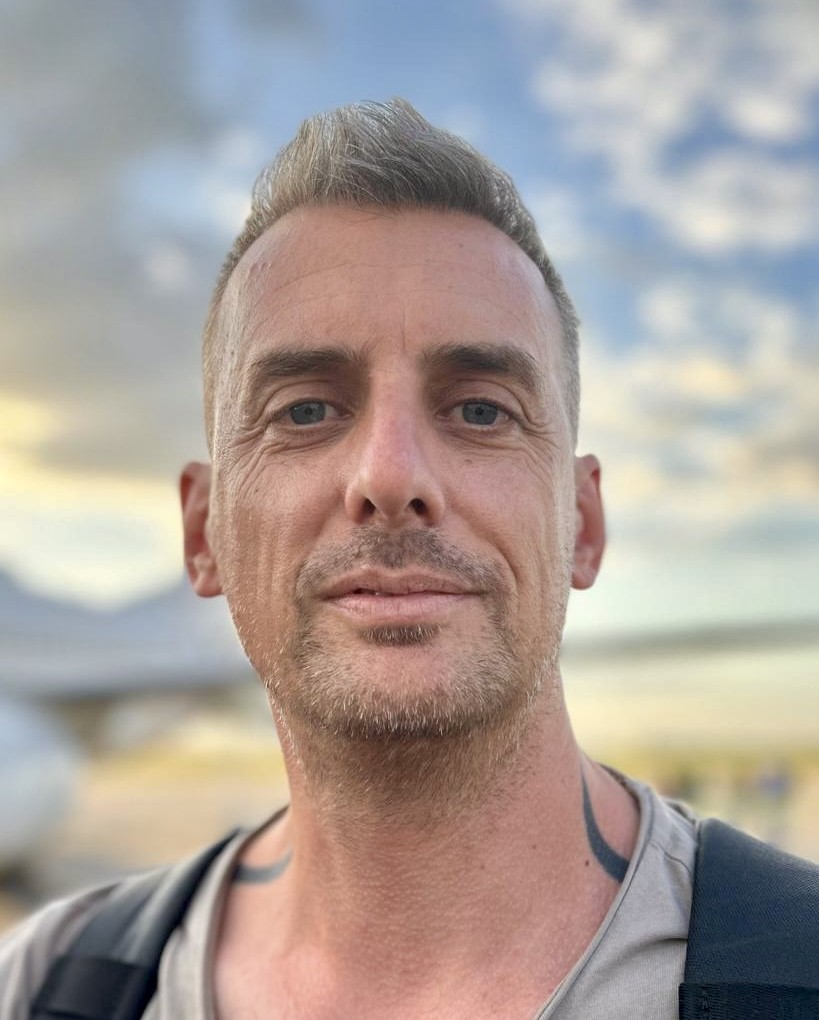
Prof Daniel Haun
Max Planck Institute for Evolutionary Anthropology, Germany
See biography
Research areas: Comparative psychology, Cultural psychology, Developmental psychology
Daniel Haun studied Experimental Psychology in Germany, the United States, and England. He received his Ph.D. at the Max Planck Institute for Psycholinguistics and spent his postdoctoral studies focusing on spatial and social cognition in non-human great apes and children at the Max Planck Institute for Evolutionary Anthropology. He was a Lecturer of Psychology at the University of Portsmouth before directing the Max Planck Research Group for Comparative Cognitive Anthropology. He was a Professor of Developmental Psychology at the University of Jena and later at Leipzig University where he was the founding Director of the Leipzig Research Center for Early Child Development. During all this time he also became a father, was named Axatib by the Hai//om people of Farm 6, ate flying ants with chimpanzees, and received a serious electric shock building testing apparatuses for Orangutans on Kalimantan. Since 2019 he is the director of the Department of Comparative Cultural Psychology at the Max Planck Institute for Evolutionary Anthropology and a Professor for Comparative Cultural Psychology at Leipzig University. Daniel ultimately wants to understand how human cognition compares to that of other animals. He believes that understanding differences across animal species requires studying cognitive diversity within species. That’s why his group studies cognition across diverse cultural and ecological settings across 6 continents.
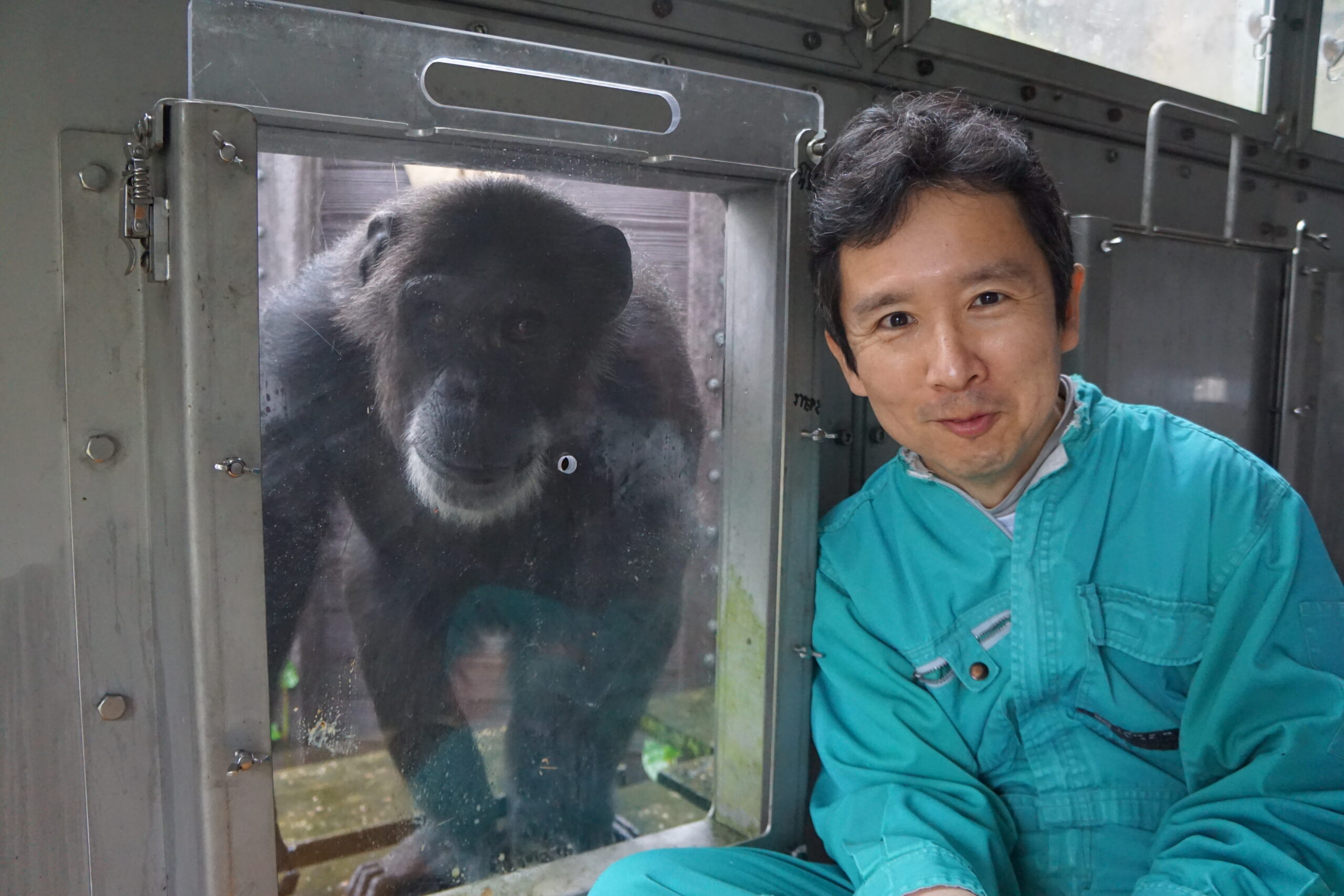
Prof Satoshi Hirata
Wildlife Research Center
Kyoto University
See biography
Research areas: Animal cognition, Ethology
Satoshi grew up near Hiroshima and obtained a BA, Master and Doctoral degree (all in Science) from Kyoto University, Japan. Prior to becoming Professor at the Wildlife Research Center of Kyoto University, he was a senior scientist in the Hayashibara Great Ape Research Institute and a program-specific associate professor at the Primate Research Institute of Kyoto University. Since graduate school, the main target of his research has been chimpanzees. He aims to explore the evolution of the human mind through the investigation of behaviour and cognition in great apes and other animals.

Prof Shoji Itakura
Research Organization of Open Innovation and Collaboration
Ritsumeikan University, Japan
See biography
Research areas: Developmental science, Developmental cybernetics, Comparative cognitive development
Shoji Itakura obtained his Ph.D. from the Graduate School of Science at Kyoto University (Primate Research Institute). After serving as a JSPS Research Fellow (PD), he worked as a visiting researcher at the Child Development Institute of New Jersey Medical and Dental University in the United States and as a visiting researcher at the Yerkes Primate Center at Emory University. Afterward, he became an associate professor, then a professor at the Graduate School of Letters, Kyoto University. He proposed the research field of ‘Developmental Cybernetics, which focuses on the integration of robots and children, and he continues his research in this area to this day.
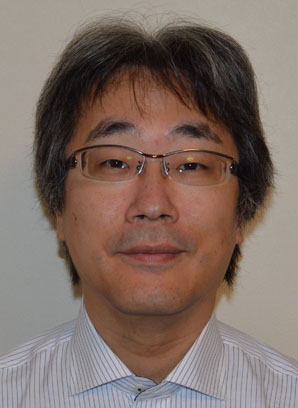
Prof Takayuki Kanda
Kyoto University, Japan
See biography
Research areas: Human-Robot Interaction
Takayuki Kanda is a professor in Informatics at Kyoto University, Japan. He is also a Visiting Group Leader at ATR Intelligent Robotics and Communication Laboratories, Kyoto, Japan. He received his B. Eng, M. Eng, and Ph. D. degrees in computer science from Kyoto University, Kyoto, Japan, in 1998, 2000, and 2003, respectively. He is one of the starting members of Communication Robots project at ATR. He has developed a communication robot, Robovie, and applied it in daily situations, such as peer-tutor at elementary school and a museum exhibit guide. His research interests include human-robot interaction, interactive humanoid robots, and field trials.
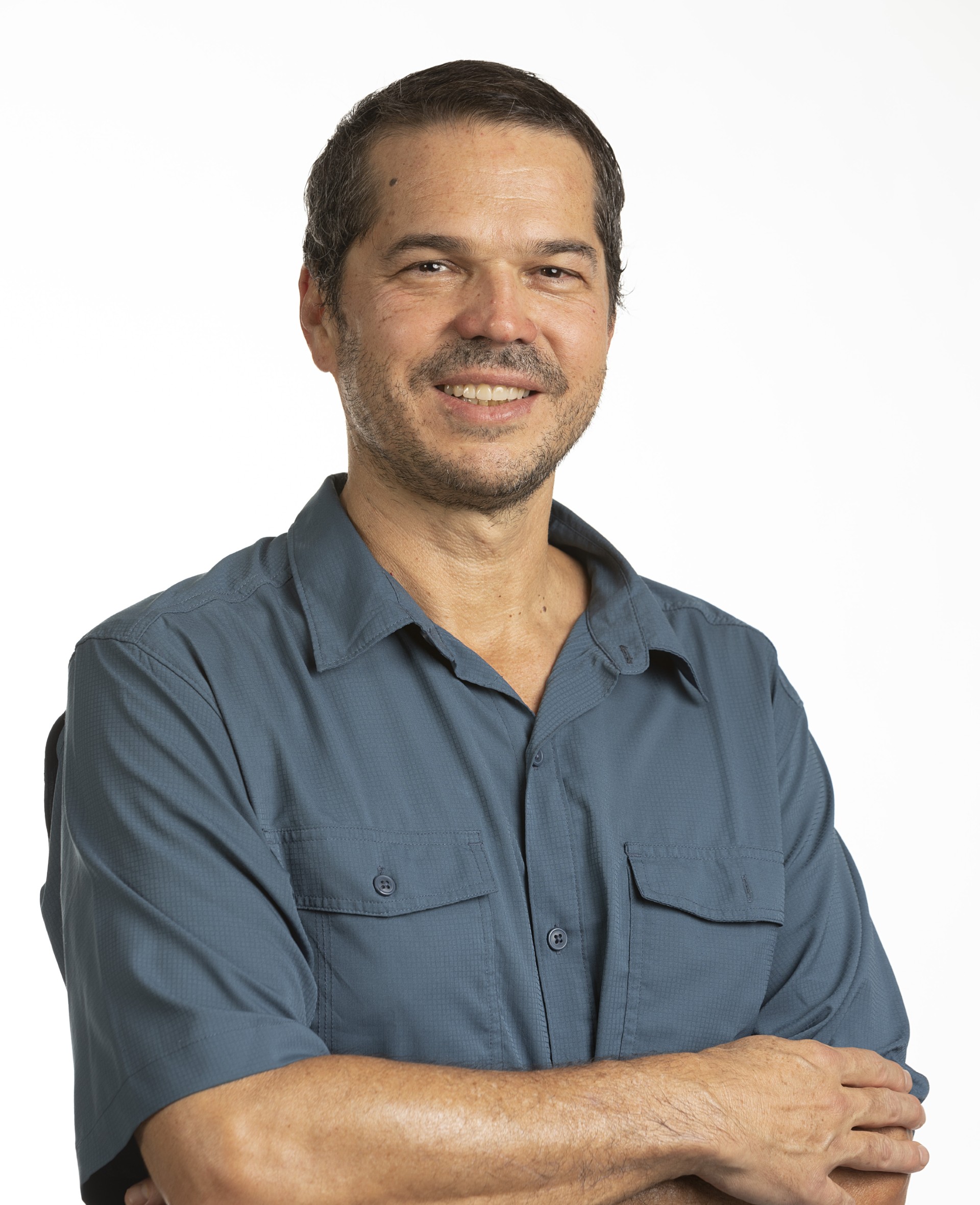
Dr Gabriel Ramos-Fernandez
Research Institute on Applied Mathematics and Systems
National Autonomous University of Mexico
See biography
Research areas: . Behavioural ecology, Social complexity, Collective intelligence
Gabriel was born and raised in Mexico City and obtained a BSc. (Basic Biomedical Research) from the Universidad Nacional Autónoma de México (UNAM) and a PhD (in Biology) from the University of Pennsylvania (USA). He worked as an academic advisor to a conservation organisation in the Yucatan peninsula, did a postdoctoral stay at the Complex Systems department in the Institute of Physics and then joined the Instituto Politécnico Nacional as a lecturer, a position he held for 12 years. Since 2018 he works as a researcher at UNAM, holding joint appointments at the Mathematical Modeling of Social Systems department and the Centre for Complexity Sciences. Gabriel is very interested in the relationship between social complexity and cognition, particularly on how groups of human and nonhuman animals solve problems collectively.
Dr Gabriel Ramos-Fernandez – Researcher profile (in Spanish, translating soon)
Proyecto CONAHCYT Ciencia de Frontera (in Spanish, translating soon)
Dr Gabriel Ramos-Fernandez – ORCID

Prof Philippe Rochat
Department of Psychology
Emory University, USA
See biography
Philippe Rochat is Professor of Psychology at Emory University and Director of the Emory Infant and Child Laboratory. He was born and raised in Geneva, Switzerland. He was trained by Jean Piaget and his close collaborators and received his Ph.D. from the University of Geneva, Switzerland in 1984. He then began a series of Post Doctoral internships in the United States at Brown University, the University of Pennsylvania, and collaborative research at Johns Hopkins University. During this time, he conducted research on action, perception, and cognitive development in human infants. He taught and did research in developmental psychology at the University of Massachusetts, and joined the faculty at Emory University in Atlanta in the 1990s, where he is currently a professor of psychology and head of the Emory Infant and Child Lab (see the complete list of publications and PDFs at Emory Infant and Child Lab).
The main focus of his current research is on the early sense of self, emerging self-concept, the developmental origins of self-consciousness, the development of social cognition and relatedness, and the emergence of a moral sense during the preschool years in children from all over the world. Philippe Rochat and collaborators’ research emphasises differences in populations growing up in highly contrasted cultural environments, as well as highly contrasted socio-economic circumstances.

Prof José Santos-Victor
Institute for Systems and Robotics
Laboratory of Robotics and Engineering Systems (LARSyS)
Instituto Superior Técnico
Universidade de Lisboa, Portugal
See biography
Research areas: Cognitive vision and robotics
Prof José Santos-Victor (Fellow, IEEE) received the Ph.D. degree in electrical and computer engineering from Instituto Superior Técnico (IST), Lisbon, Portugal, in 1995. He is a Full Professor of Computer Vision and Robotics with IST. He is a researcher and past-president of the Institute for Systems and Robotics, Lisbon, and the founding head of the Computer and Robot Vision Laboratory, Lisbon. He carries out research in cognitive vision and robotics, using biologically plausible principles, and aiming at better understanding human cognition. He was the Scientist responsible for the IST participation in many European and national research projects in cognitive and bioinspired computer vision and robotics. He is a Member of the Academy of Sciences of Lisbon and a Fellow of the IEEE.

Anindya Sihna
National Institute of Advanced Studies
Bangalore, India
See biography
More information coming soon.